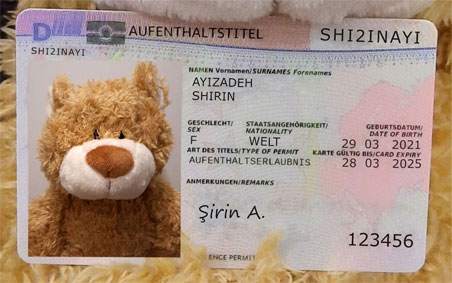A Schengen visa is a short-term visa that allows its holder to travel freely throughout the Schengen area. There are no border restrictions between the 26 countries that make up the Schengen area (“Schengen States”). Austria, Belgium, Czech Republic, Denmark, Estonia, Finland, France, Germany, Greece, Hungary, Iceland, Italy, Latvia, Liechtenstein, Lithuania, Luxembourg, Malta, Netherlands, Norway, Poland, Portugal, Slovakia, Slovenia, Spain, Sweden, and Switzerland are among these countries.
A Schengen visa is a document issued by a Schengen State that allows you to:
- An intended stay in the territory of the Schengen States of a duration of no more than 90 days in any 180 days period (“short stay visa”)
- A transit through the international transit areas of airports of the Schengen States (“airport transit visa”)
The Schengen Area and the Schengen States are depicted on a map.
Photo from The Schengen visa (europa.eu)
A Schengen visa serves what purpose?
Typically, a Schengen visa is for a short stay in Germany and the Schengen area (up to 90 days):
- Airport Transit Visa
- Tourist/Visitor Visa
- Business Visa
- Trade Fair & Exhibitions Visa
- Training/Internship Visa
- German Language Course Visa (up to 3 months)
- Visa for the Recognition of Professional Qualifications
- Visa for Cultural, Film Crew, Sports, and Religious Event Purpose
Citizens of 63 countries can currently enter Germany without a Schengen visa for periods of less than 90 days during a 180-day period.
The following countries are included in the visa-waiver program:
| ETIAS Countries |
| Albania, Andorra, Antigua and Barbuda, Argentina, Australia, Bahamas, Barbados, Bosnia and Herzegovina, Brazil, Brunei, Canada, Chile, Colombia, Costa Rica, Dominica, El Salvador, Georgia, Grenada, Guatemala, Honduras, Hong Kong, Israel, Japan, Kiribati, Macao, Malaysia, Marshall Islands, Mauritius, Mexico, Micronesia, Moldova, Monaco, Montenegro, New Zealand, North Macedonia, Nicaragua, Palau, Panama, Paraguay, Peru, Saint Kitts and Nevis, Saint Lucia, Saint Vincent, Samoa, San Marino, Serbia, Seychelles, Singapore, Solomon Islands, South Korea, Taiwan, Timor Leste, Tonga, Trinidad and Tobago, Tuvalu, Ukraine, United Arab Emirates, United Kingdom, United States of America, Uruguay, Vanuat, Vatican City, Venezuela |
If you are not a citizen of one of the 63 countries with whom the European Union has created a visa-free system, you will need to apply for a visa before entering Germany.
Find out about visa requirements and application process
What type of visa must you apply for? Do you require a work permit or a student/work visa? All of the answers to these questions have been compiled.
Learn more about the other types of visas
Work Visa
Learn more about the German work visa if you wish to live, work, and later settle permanently in Germany.

Student Visa
A student visa is required if you wish to study at a German institution or complete an apprenticeship in Germany.

Language Course Visa
You should apply for this visa if you wish to learn German in Germany, whether to prepare for work, study, or simply for culture.

Vital information for you
- Non-EU citizens wishing to work or study in Germany must first get a Schengen visa appropriate to your purpose of entrance, before entering the country. To apply for a Schengen work visa or study visa, contact the German embassy or consulate in your own country. If you plan to stay in Germany for more than 90 days for employment or study, or if you plan to migrate to Germany permanently, you must apply for a resident visa after entering the country. You should contact your local Foreign Office right away to have your Schengen Visa converted to a Long Stay Visa.
- Please keep in mind that you cannot work or study in Germany while holding another form of Schengen visa, for example, a tourist visa. Hence, if you want to come to Germany for work or study, you cannot claim tourism as your purpose for visiting. Depending on your purpose of entry, you must apply for a student visa, a work visa (national visa), or other visa kinds.
- Citizens of the United States of America can apply for a residence permit, after entering Germany without a Schengen visa.
💡 Do you know that our AZAPA visa service team can assist you with Visa Application processes?
Our government-licensed Schengen and National Visa Service consultants are experts in German visa requirements and are up to date on the most recent criteria. We will provide you with the greatest possible assistance, and if you desire it, we will manage the full visa application process for you. Do you want to schedule a consultation? Now is the time to schedule a visa consultation with us.
